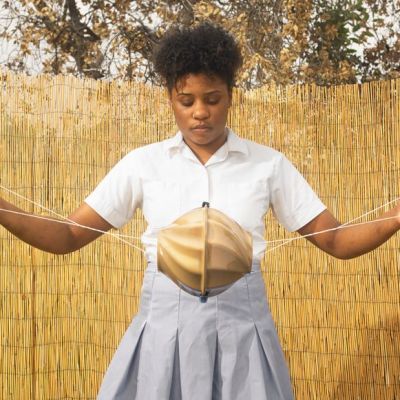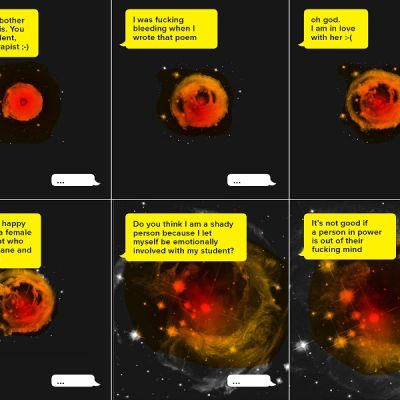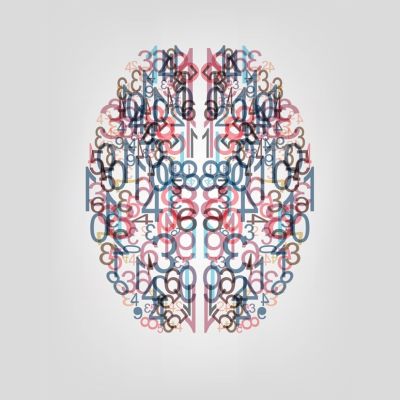Science
A short documentary on India’s menstruation man, Arunachalam Muruganantham, who wore an artificial uterus, was left by his wife for five years, and was called a pervert by the neighbours – all in his pursuit to create cheap yet effective sanitary napkins for women who cannot afford safe menstrual hygiene products.
No one ever really talks about how queer people in STEM fields navigate hostile spaces. ‘STEM’ stands for ‘Science, Technology, Engineering, Math’. We Indians, of course, are well aware of what these fields entail because our parents, neighbours and teachers often push us towards them. Pursuing a career in the humanities/arts means deviating from the norm, so it makes sense that sexualities and gender identities which are considered ‘deviant’ often flourish in these fields.
The scientific establishment’s inability to attract enough women and keep them in the workforce is a large enough problem for it to feature in interactions between nation’s governments.
Facebook. Google. Apple. Microsoft. Amazon. As the white male-dominated Big Five in Silicon Valley monopolise most platforms that guide online interactions almost everywhere outside China, any aspiration towards a feminist revolution has become capitalised.
Medical abortion is a threat to scientific authorities because it is technology easily used without the help of a medical provider. Since there is doubt that women will use the drug safely without supervision (even though they did it before and are still doing it), some think the kinder option is to remove their opportunity to fail.
The two people involved in the transaction of surrogacy occupy different positions of power. The surrogate who bears the child is not a woman with similar economic and social standing as the one who receives the child.
A movement back to reusable cloth pads or even towards the use of menstrual cups aims not only to create ways of dealing with menstruation that are healthier for the body and the environment, but also to open up a dialogue regarding the taboos and inhibitions regarding menstrual blood that stem from culture as well as paid media.
I spent time reading up the basics of gender-neutral design to understand the connect between science, society and gender. Sometimes, some people try to prove that there are ‘scientific’ reasons for inequality and injustice, for depriving one set of people of the same choices and opportunities that another set of people enjoy. This is not true. Times are changing. ‘Biased technologies’ are being altered.
It began in the third year of my PhD. I had just returned from India and a fellow classmate sent me an e-mail. The e-mail was about his feelings for me, asking me to consider a relationship with him.
If a woman’s clothing is tight or revealing (in other words, sexy), it sends a message — an intended one of wanting to be attractive, but also a possibly unintended one of availability. If her clothes are not sexy, that too sends a message, lent meaning by the knowledge that they could have been. There are thousands of cosmetic products from which women can choose and myriad ways of applying them. Yet no makeup at all is anything but unmarked. Some men see it as a hostile refusal to please them.
For a long time, female bodies were considered similar to male bodies, just shorter, and most research and medical trials focused primarily on the male body with the assumption that the same would work on the female body.
Societal norms that are contested, especially around body and sexuality, are often passed as the ‘natural order’ of things. The objective study of ‘nature’ that science claims to do induces society to seek scientific explanations to verify naturalness. It has been shown in many cases that the questions that scientists ask, and the methods they use, are coloured by norms of society. Yet, the ‘scientific answers’ thus got help determine what is natural. In the process, the normative gets naturalised.
Popular science stories can be exciting, educative and a lot of fun to read. But sometimes we come across that…
Some nights I worry that if birth control for men is indeed released, clinical trials of which were suspended in 2016 as its side effects, incidentally the same as what women have been dealing with for ages, were just not worth it, it would be named Fuckboi.
Cyberspace has given the queer woman a chance to problematize the existing gender and sexual identities which, like any identity, is not static. It allows her to create and occupy spaces which will give her freedom and power in a way that the misogynistic physical world cannot provide.















